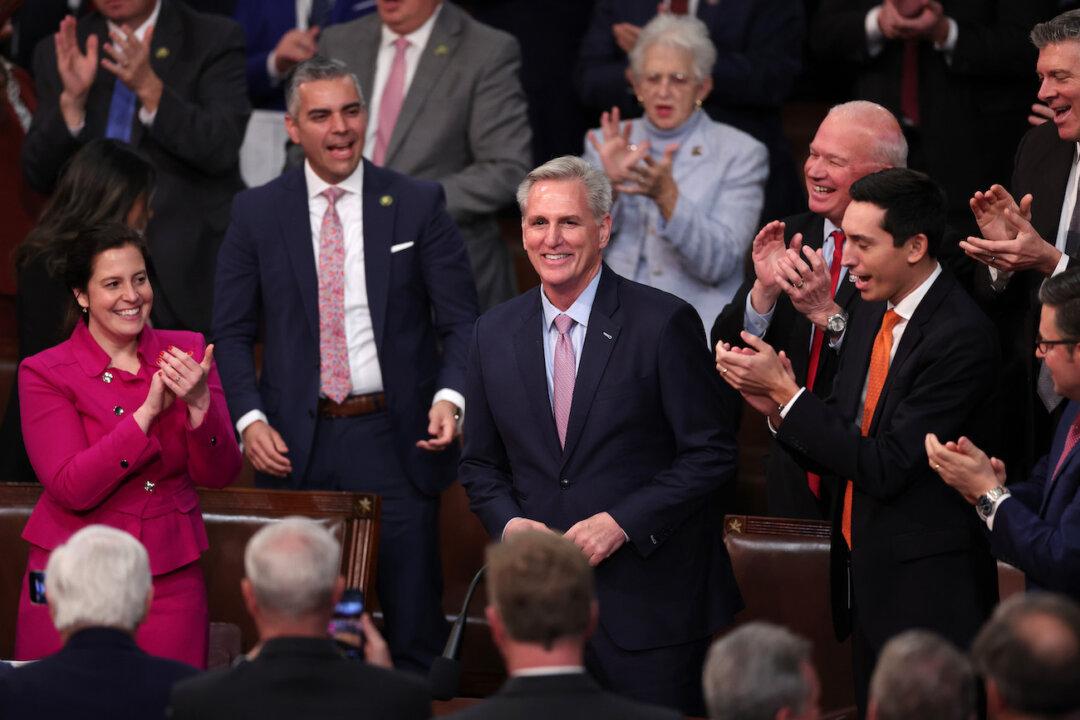Exhausted members of the U.S. House of Representatives took their seats a little after 1 a.m. on Jan. 7 to watch the maiden address of Speaker Kevin McCarthy (D-Calif.), who was finally elected to hold the gavel after the longest, most contentious, and bruising Speaker votes since the Civil War.
And as the protracted episode reminded America—without a Speaker members of the House cannot be sworn in and House business and legislating cannot begin.





